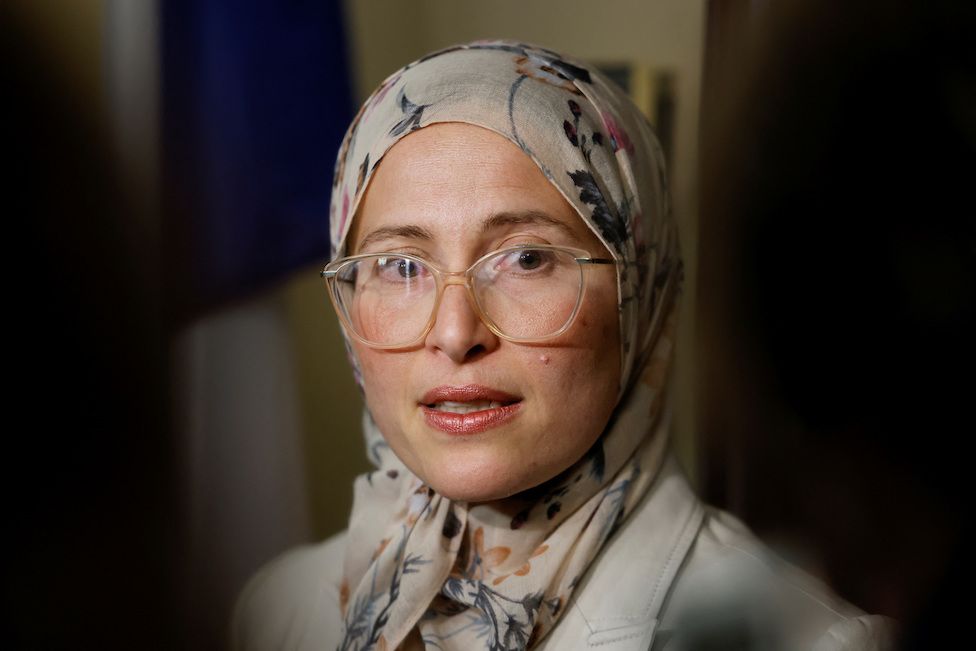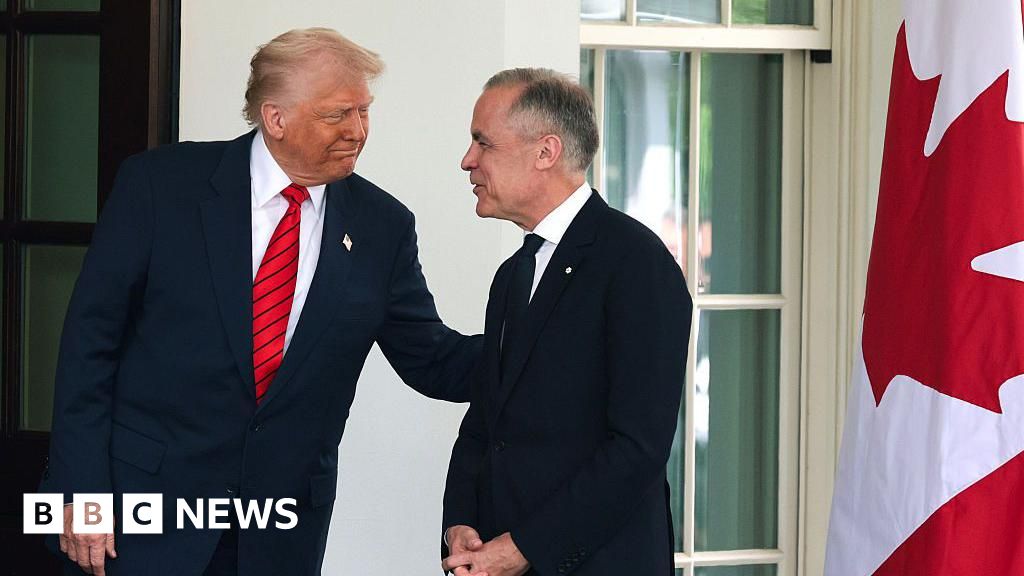ARTICLE AD BOX
 Image source, Reuters
Image source, Reuters
Amira Elghawaby is Canada's first special representative to combat Islamophobia
By Robin Levinson-King
BBC News, Toronto
Canada's first-ever anti-Islamophobia tsar is facing calls to resign after an op-ed resurfaced in which she called Quebecers Islamophobic.
Amira Elghawaby was appointed last week to the new position by Prime Minister Justin Trudeau.
In 2019, she co-wrote an opinion piece attacking a Quebec law that banned public servants from wearing religious symbols, including hijabs.
Last week, after her words resurfaced, she walked back her comments.
She said her article was meant to be a criticism of the law, not Quebecers themselves.
The op-ed, which she co-wrote in 2019 with a social activist for the Ottawa Citizen newspaper, read: "Unfortunately, the majority of Quebecers appear to be swayed not by the rule of law, but by anti-Muslim sentiment."
I don’t believe that Quebecers are islamophobic my past comments were in reference to a poll on Bill 21. I will work with partners from all provinces and regions to make sure we address racism head on.
— Amira Elghawaby (@AmiraElghawaby) January 27, 2023The BBC is not responsible for the content of external sites.View original tweet on Twitter
On Wednesday, amid mounting criticism, Ms Elghawaby apologised to Bloc Québécois Leader Yves-François Blanchet, who is the head of Quebec's federal separatist party.
"I am convinced, and I know and say it, that Quebecers are not racist," Ms Elghawaby said, according to the Montreal Gazette.
"It was not my intention, and because of the injuries caused by my words, I sincerely apologise."
But her apology did not immediately quell calls for her resignation.
On Thursday, Mr Blanchet said Ms Elghawaby was "hostile to the values of Quebec" and urged Mr Trudeau to abolish the position entirely.
Mr Trudeau said he supports Ms Elghawaby "100%", while adding that he did not agree with her op-ed. "Quebecers are not racist," he said.
The prime minister has been a vocal critic of the bill, arguing it restricts people's freedom of expression and religion, but he has said the federal government will not intervene right now in the court process.
Bill 21, which came into law in Quebec in 2019, prevents judges, police officers, teachers and public servants from wearing symbols such as the kippah, turban or hijab while at work.
The law is currently being challenged in the courts.
Ms Elghawaby's appointment comes amid growing concern about Islamophobia in Canada as a whole.
Last year, worshippers stopped an axe-wielding man who tried to attack a mosque in Mississauga, Ontario.
In 2021, a man drove his vehicle into a Muslim family, killing four in the city of London, Ontario.
In 2017, six people were killed and eight injured in a shooting at a mosque in Quebec City.
Ms Elghawaby's appointment was heralded as a necessary step by the National Council of Canadian Muslims (NCCM).
Stephen Brown, head of the NCCM, said: "Islamophobia has been rising in recent years as mosques are consistently vandalized and Muslims are constantly harassed across the country. This cannot continue, enough is enough."
But the legislation remains popular in Quebec.
The province has a long and bitter history with the Catholic Church, which controlled many public institutions in the predominantly French-speaking Quebec for over a century.
Proponents of the bill have argued it is not anti-Muslim, but pro-secularism.

 2 years ago
44
2 years ago
44








 English (US) ·
English (US) ·